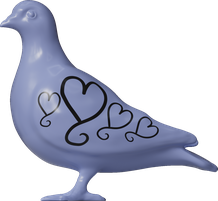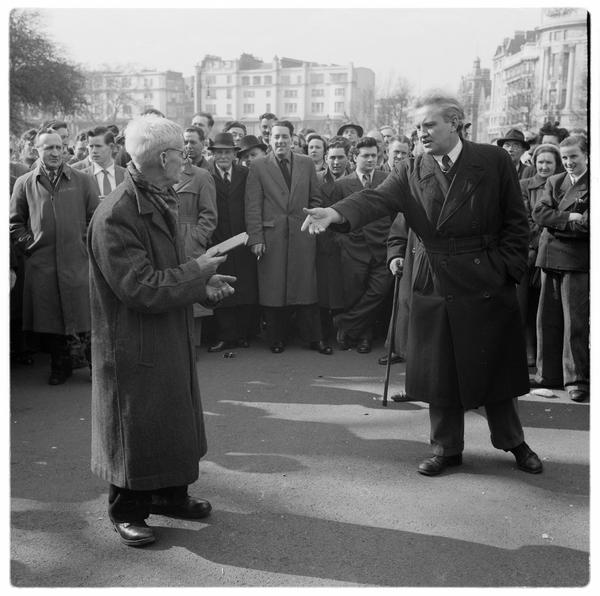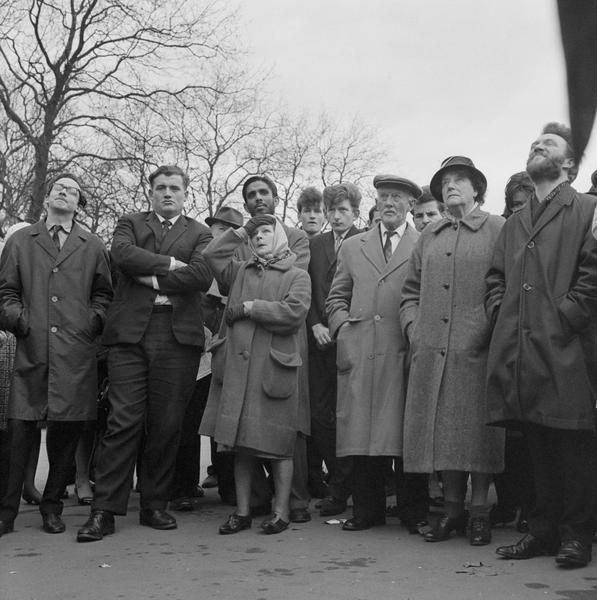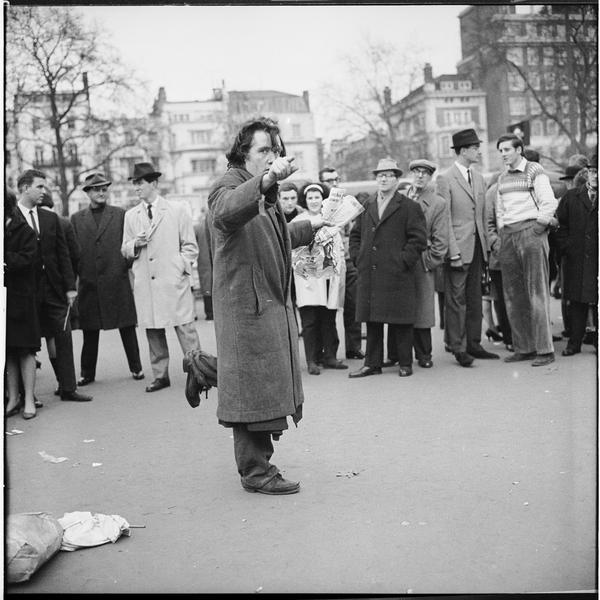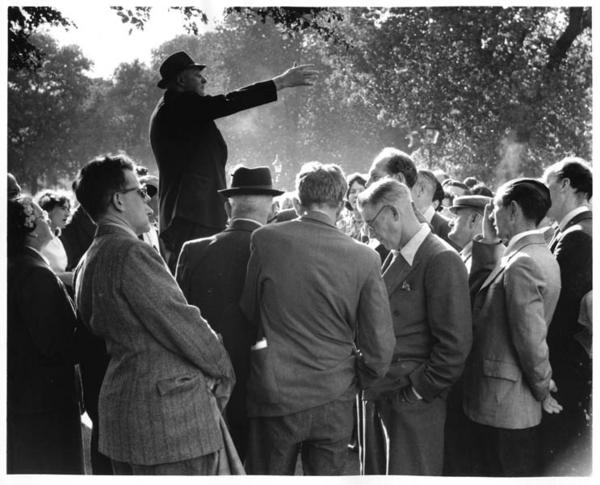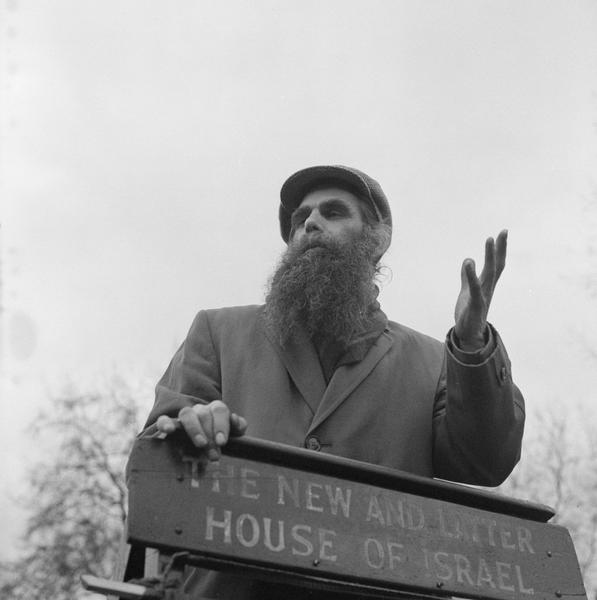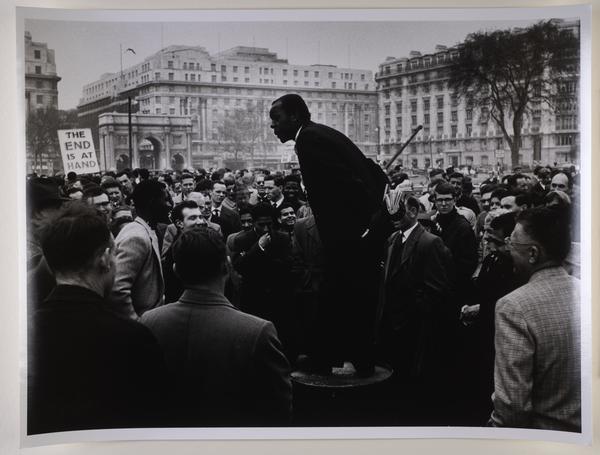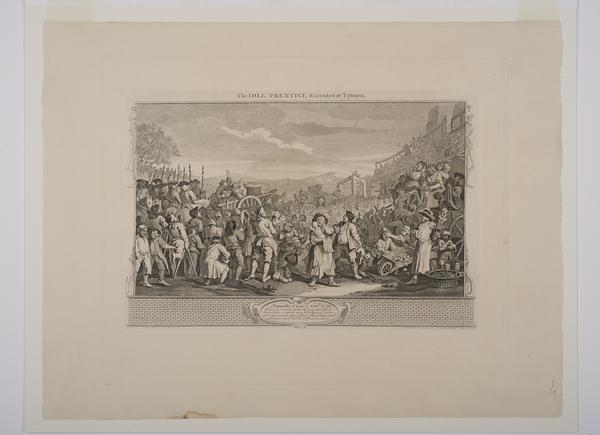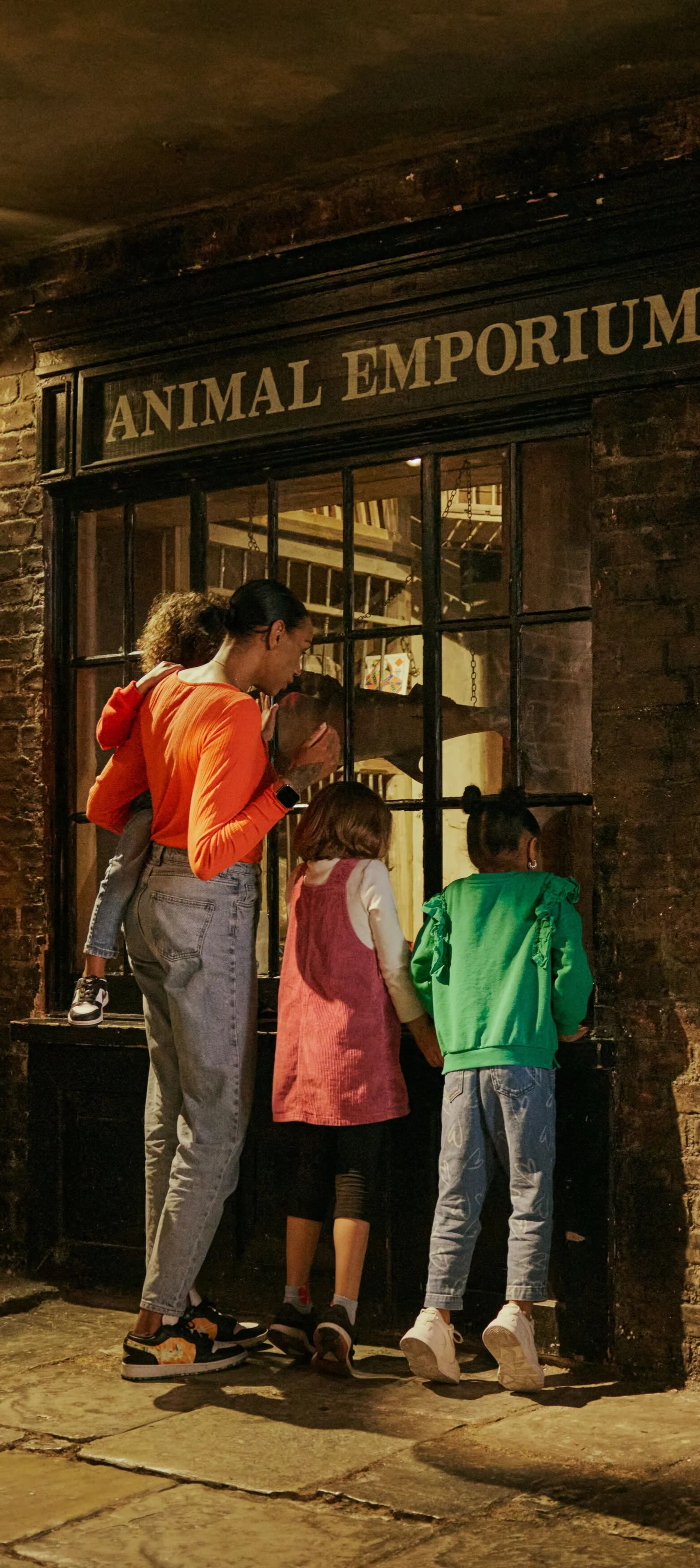Speakers’ Corner: A home of free speech
Fancy yourself a public speaker? A dynamic debater? Or just happy to lend a listening ear? Get yourself to Speakers’ Corner in Westminster’s Hyde Park, a public space where people have gathered to lecture and discuss for over 150 years.
Hyde Park
1872 – today
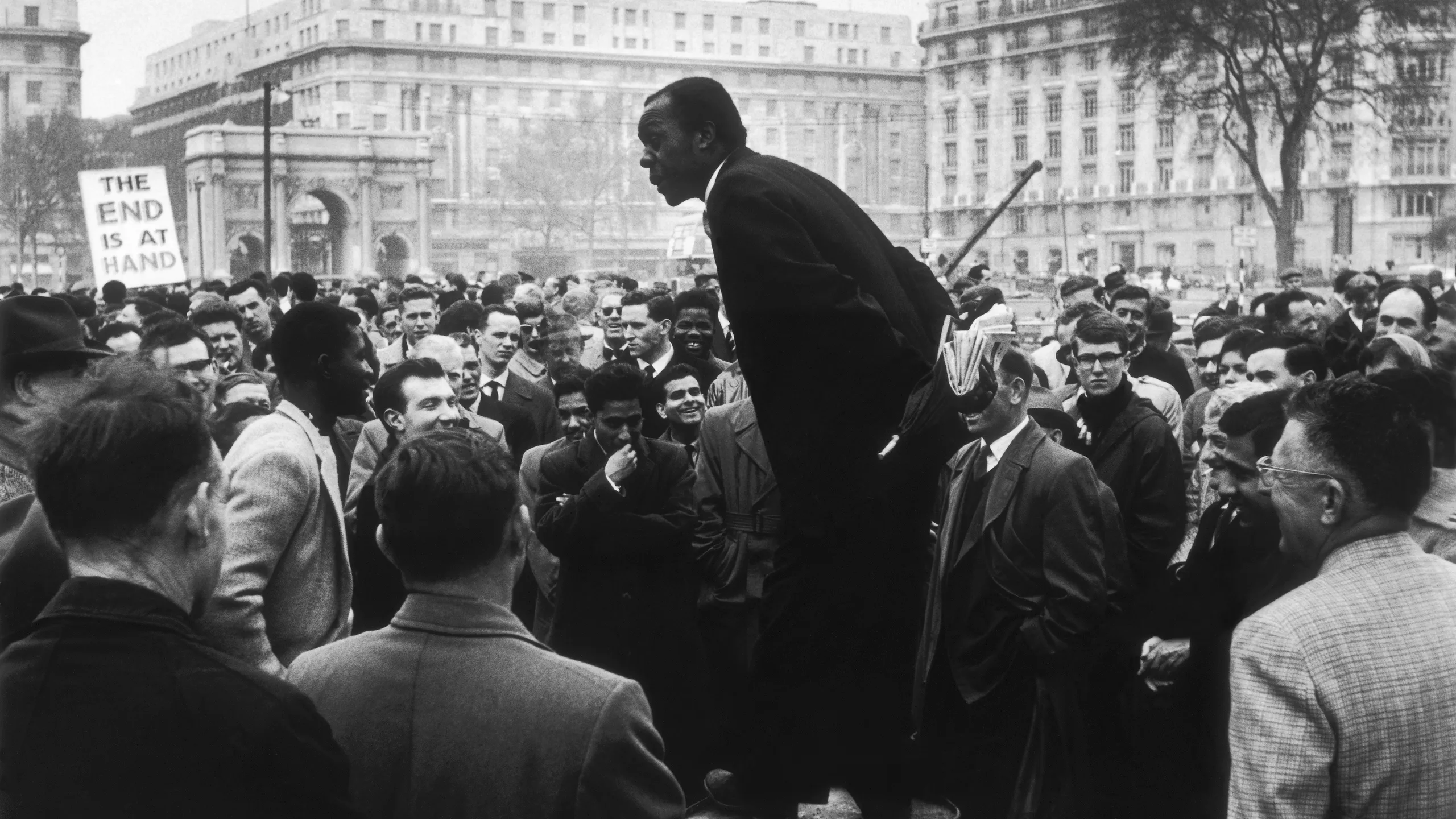
What is Speakers’ Corner?
Speakers’ Corner is a famous area for public speaking and debate that has existed since the 1800s. There’s no stage – it’s just an open space – but speakers often bring small platforms to stand on, known as soapboxes. There were once around 100 of these speaking places in London’s parks and other public spaces. But Speakers’ Corner is the last to survive.

A home of freedom of speech
Hyde Park has been a destination for marches, speeches and public demonstrations for hundreds of years. A law passed in 1872 established the right to meet and speak freely in a designated area of the park. Anyone can turn up unannounced to speak on any subject, as long as the police consider their speeches lawful.

Where is Speakers’ Corner?
Speakers’ Corner is on the north-east of Hyde Park, close to Marble Arch and the western end of Oxford Street. The closest Tube station is Marble Arch on the Central Line. It’s an area with heavy footfall – so speakers here can draw large crowds.

An area with a dark history
The Tyburn Gallows stood nearby between 1196 and 1783. Tens of thousands of people were executed there during that time. Many people attended these executions. Crowds could hear the accused make their final speech.

When is Speakers’ Corner open?
Traditionally, people gather on Sundays to join in debates and discussions. There’s no rota or official programme – you just turn up and take turns.

Who’s spoken at Speakers’ Corner?
German philosopher Karl Marx, Russian revolutionary Vladimir Lenin and British Black Panther leader Altheia Jones-Lecointe have all spoken at Speakers’ Corner. Jamaican Black nationalist Marcus Garvey was also a regular. And the Suffragettes held Votes for Women meetings there in the early 1900s. People speak about a wide range of topics, including economics, philosophy, politics and religion.

